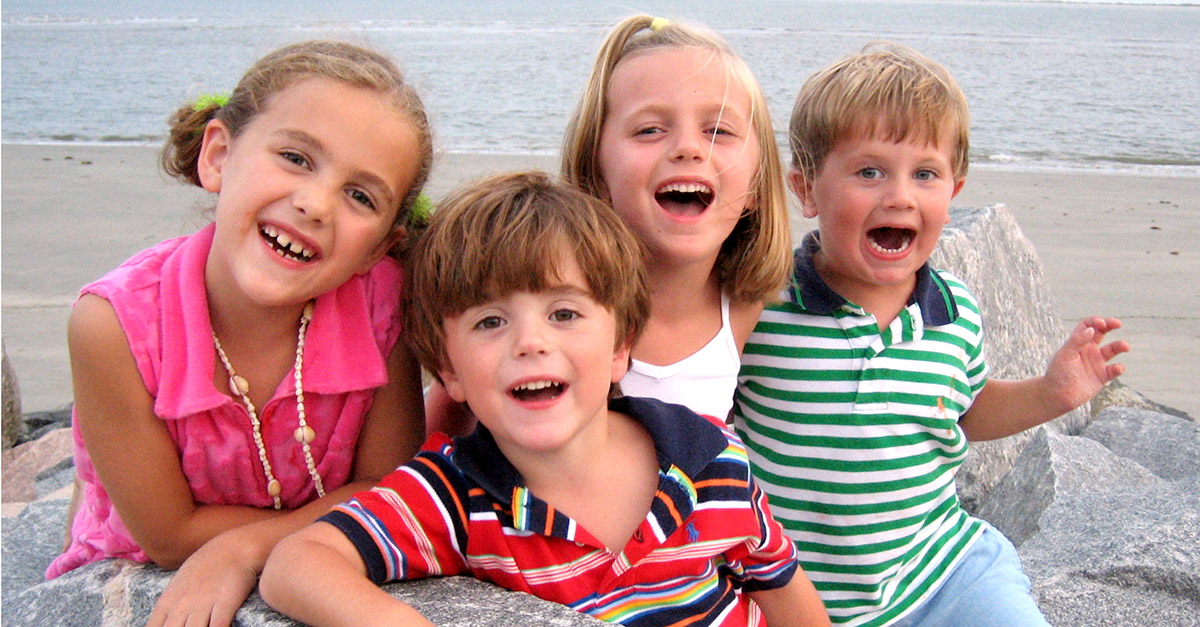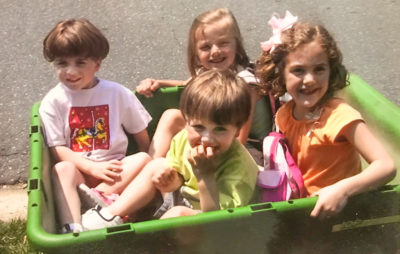
“It is easier to build strong children than to repair broken men.” – Frederick Douglas
It was to be the perfect week at the beach, and it was, right up until the police arrived.
Two children, now adults with their own families, remembered the fun they enjoyed when their parents took them places like the beach.
It was in the winter, right about this time of year, when the brother and sister started planning an early summer trip for their own young families. “There’s no better way to get to know each other than by living for a week under the same roof,” the brother said to his sister, wanting their children – cousins – to be close. She agreed.
The brother and his wife had two children. His sister and her husband had two as well. They needed four bedrooms: one for each couple, another for the two girl cousins, and another for the two boys. Not the largest beach house on the strand, nor the smallest.
The weather was perfect, a high-pressure system had anchored over the Carolina coast. No rain in sight.
The first day was full of exploring. The next offered too much sun at the beach, making the children cranky. An early dinner and bedtime was the sister’s advice.
The wife of the brother and husband of the sister fixed dinner, visiting as they both prepped and cleaned up. The other brother and sister reminisced about past family trips.
With the children now in bed, the adults sat at the freshly cleaned table and talked. It’s not clear who made the suggestion, but they decided to play cards.
“What games do we all know?” asked the sister’s husband. Contract Bridge was ruled out, along with Canasta. “No one plays that anymore,” one said. Go Fish and Slap-Jack were childish.
Poker, that’s what they’d play. There were chips in the cabinet where they found the cards. “Dealer gets to name the game,” and “If you don’t know the rules, well, you’ll learn as we go along,” the brother announced.
Meanwhile, the children who were thought to be sleeping – were not. They had gathered in the girl cousin’s room, the oldest reading them a story. They knew to be quiet, or trouble would follow.
The oldest boy, the brother of the story reader, was sent to peek round the corner. “What are they doing?” the story reader asked.
“They’re playing a card game, with bright colored things on the table. Poker, it’s called, I think,” was her brother’s report.
“That’s GAMBLING, and that’s NOT LEGAL,” the story reader exclaimed. “It’s wrong, and they shouldn’t be doing that.”

She dialed 911 from the phone in the girl cousin’s room, where she had been reading the story, and told the nice lady who answered what was happening in the house by the beach.
When the nice lady asked where they lived, the young story reader got nervous and hung up the phone.
Was poker a code word for child abuse? The police weren’t taking chances, and the children soon learned 911 can identify any caller’s address.
The cousins were in bed, pretending to be asleep, when the doorbell rang.
“We have a report about gambling. We need to look around,” one officer said.
As much as the adults tried to explain how they were playing for fun, how there wasn’t money involved, the officers kept searching.
After looking in on the children, the officers left. But, for the rest of the week marked cars drove by, and there was an officer on the beach.
Yes, children know what’s right – when they have been taught. Then, children (like adults) need to be brave to do the right thing, especially when the outcome may not be pleasant. The brother had been right, “There’s no better way to get to know each other than by living for a week under the same roof.”
They had planned the perfect beach trip, and maybe it was; learning how they had taught their children to do the right thing, and to be brave.
Was dialing 911 the story reader’s best choice?
Should she have called the police on her own parents, on her uncle and aunt? Or should she have ignored what she thought was illegal and gone to bed.
What about the adults? Were they right to use the experience to show how choices are not easy, not simply black or white?
As always, the conversation starts here.
“In the ordinary choices of every day we begin to change the direction of our lives.” – Eknath Easwaran

I hadn’t heard this story!!
Leigh Ann –
HaHa, it’s a bit old and not told much anymore. Thanks for reading.
– Bruce
Why is there so little trust toward the parents on the part of these children? A better choice would be to confront the parents…now that would be brave!
Vera –
I agree. I’ll see if the children, now grown, remember.
Thanks for your comment.
– Bruce